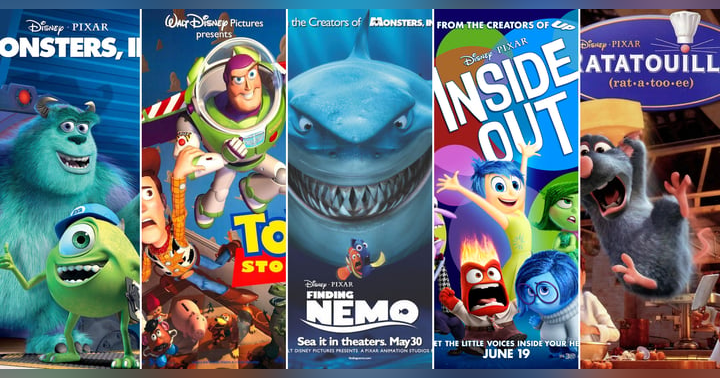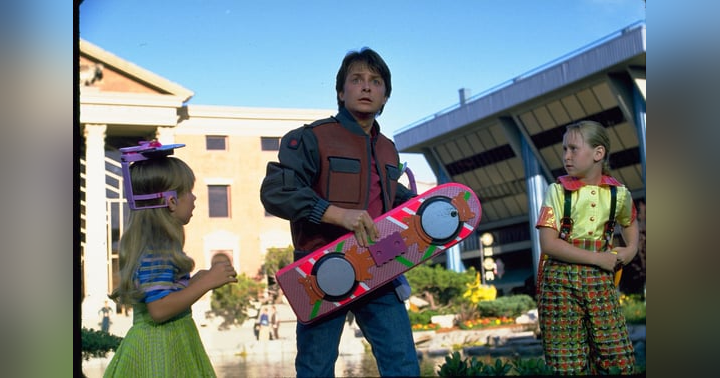Decade-Defining Movies: A Look at Cinema's Evolution

Cinema has always reflected the society it portrays, capturing the essence of its time through storytelling, character development, and visual spectacle. From the gritty realism of the 1970s to the CGI-laden blockbusters of today, movies have evolved dramatically, each decade bringing its own flavor to the silver screen. Here, we journey through the decades, exploring three defining films from each era that have left an indelible mark on audiences and the industry.
The 1970s: A New Wave of Cinema
The 1970s were a transformative period for Hollywood, marked by a shift towards more realistic and gritty storytelling. This era, often called New Hollywood, saw filmmakers pushing boundaries and experimenting with new techniques.
1. The Godfather (1972), Directed by Francis Ford Coppola, is a masterpiece that redefined the gangster genre. Based on Mario Puzo's novel, the film chronicles the Corleone crime family's rise to power and the leadership transition from Vito Corleone (Marlon Brando) to his son Michael (Al Pacino). Its compelling narrative, stellar performances, and iconic lines like "I'm gonna make him an offer he can't refuse" have cemented it as one of the greatest films ever made.
2. Star Wars (1977) George Lucas's Star Wars (later retitled Star Wars: Episode IV - A New Hope) revolutionised the science fiction genre and established a sprawling universe that continues to captivate audiences today. Its groundbreaking special effects, memorable characters, and epic storytelling spawned a franchise that has become a cultural phenomenon.
3. Taxi Driver (1976) Martin Scorsese's Taxi Driver is a dark and gritty exploration of urban alienation and psychological turmoil. Robert De Niro's portrayal of the disillusioned Vietnam War veteran Travis Bickle is both haunting and compelling. The film's raw depiction of New York City's underbelly and iconic line, "You talkin' to me?" has made it a staple of 70s cinema.
The 1980s: Blockbuster Boom
The 1980s saw the rise of the blockbuster, with big-budget films dominating the box office. This decade also witnessed the emergence of high-concept films that prioritised entertainment and spectacle.
1. E.T. the Extra-Terrestrial (1982) Steven Spielberg's E.T. captured the hearts of audiences worldwide with its touching story of a young boy named Elliott who befriends an alien stranded on Earth. The film's emotional depth, innovative special effects and memorable score by John Williams, made it a timeless classic.
2. The Empire Strikes Back (1980) Often regarded as the best film in the Star Wars saga, The Empire Strikes Back delved deeper into character development and dark themes. This sequel, directed by Irvin Kershner, expanded the universe and left audiences on the edge of their seats with its cliffhanger ending, including the unforgettable revelation, "I am your father."
3. Raiders of the Lost Ark (1981) Another Spielberg classic, Raiders of the Lost Ark, introduced the world to Indiana Jones, the adventurous archaeologist played by Harrison Ford. Co-created with George Lucas, the film's blend of action, humour, and suspense set a new standard for adventure films and launched a beloved franchise.
The 1990s: Innovation and Diversity
The 1990s brought technological advancements and a greater diversity of stories to the forefront of cinema. This decade saw the rise of independent films and the increasing influence of CGI.
1. Pulp Fiction (1994) Quentin Tarantino's Pulp Fiction redefined narrative structure with its non-linear storytelling and eclectic mix of characters. The film's sharp dialogue, memorable performances, and stylistic direction earned it critical acclaim and a Palme d'Or at the Cannes Film Festival, solidifying Tarantino's place in cinematic history.
2. Jurassic Park (1993) Steven Spielberg once again pushed the boundaries of special effects with Jurassic Park. The film's realistic depiction of dinosaurs, achieved through groundbreaking CGI and animatronics, captivated audiences and set a new benchmark for visual effects in filmmaking.
3. The Matrix (1999) The Wachowskis' The Matrix combined philosophical questions with cutting-edge special effects, introducing audiences to "bullet time." The film's innovative visuals, thought-provoking narrative, and Keanu Reeves' iconic role as Neo made it a landmark in science fiction cinema.
The 2000s: Franchise Fever
The 2000s were characterised by the rise of franchises and adaptations, with studios focusing on established properties and sequels to drive box office success.
1. The Lord of the Rings: The Fellowship of the Ring (2001) Peter Jackson's adaptation of J.R.R. Tolkien's The Lord of the Rings trilogy began with The Fellowship of the Ring. The film's epic scope, stunning visuals, and faithful adherence to the source material made it a critical and commercial success, setting the stage for the rest of the trilogy.
2. The Dark Knight (2008) Christopher Nolan's The Dark Knight elevated the superhero genre with its complex characters and moral dilemmas. Heath Ledger's portrayal of the Joker earned him a posthumous Academy Award and set a new standard for villainy in film.
3. Avatar (2009) James Cameron's Avatar revolutionised 3D filmmaking and became the highest-grossing film ever (until it was surpassed by Avengers: Endgame). Its visually stunning depiction of the alien world of Pandora and its environmental message resonated with audiences worldwide.
The 2010s: A New Era of Storytelling
The 2010s saw the continued dominance of franchises but also a surge in diverse storytelling and representation in film.
1. Inception (2010) Christopher Nolan's Inception combined a complex narrative with mind-bending visuals, exploring the concept of dreams within dreams. Its innovative plot structure and spectacular action sequences left a lasting impact on audiences and critics alike.
2. Black Panther (2018) Ryan Coogler's Black Panther was a cultural milestone, being the first superhero film with a predominantly Black cast and crew. Its exploration of African culture, themes of identity and responsibility, and stunning visuals made it a groundbreaking entry in the Marvel Cinematic Universe.
3. Parasite (2019) Bong Joon-ho's Parasite made history by becoming the first non-English-language film to win the Academy Award for Best Picture. Its sharp social commentary, masterful storytelling, and genre-blending narrative resonated with audiences worldwide, highlighting cinema's growing global influence.
The 2020s: A New Frontier
As we move further into the 2020s, the film industry continues to evolve, with streaming services playing an increasingly prominent role and new voices emerging in cinema.
1. Tenet (2020) Christopher Nolan's Tenet pushed the boundaries of narrative complexity and visual spectacle. Its intricate plot involving time inversion and ambitious action sequences demonstrated Nolan's continued innovation in filmmaking.
2. Dune (2021) Denis Villeneuve's adaptation of Frank Herbert's Dune brought the epic science fiction novel to life with stunning visuals and a star-studded cast. The film's ambitious scope and faithful adaptation of the source material set a new standard for sci-fi epics.
3. Everything Everywhere All at Once (2022) Daniel Kwan and Daniel Scheinert's Everything Everywhere All at Once is a mind-bending, genre-blending film that explores themes of family, identity, and the multiverse. Its inventive storytelling and heartfelt performances have made it a standout film of the decade.
Conclusion
From the gritty realism of the 70s to the high-concept blockbusters of today, each decade has brought its own unique contributions to the world of cinema. These films not only entertained audiences but also pushed the boundaries of storytelling and technology, leaving a lasting legacy that continues to influence filmmakers and moviegoers alike. As we look forward to the future of cinema, it's clear that the power of film to reflect and shape our times remains as strong as ever.














